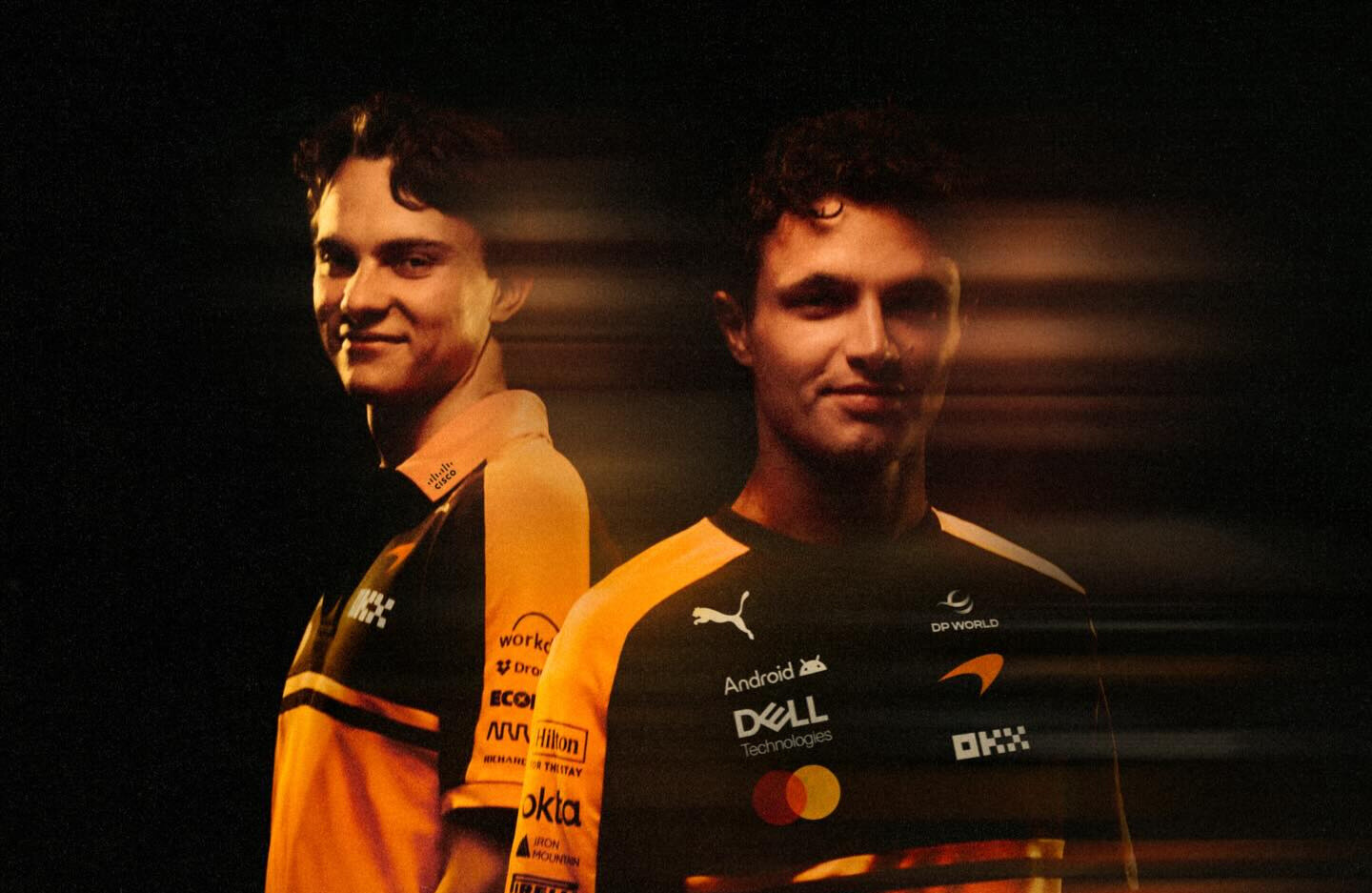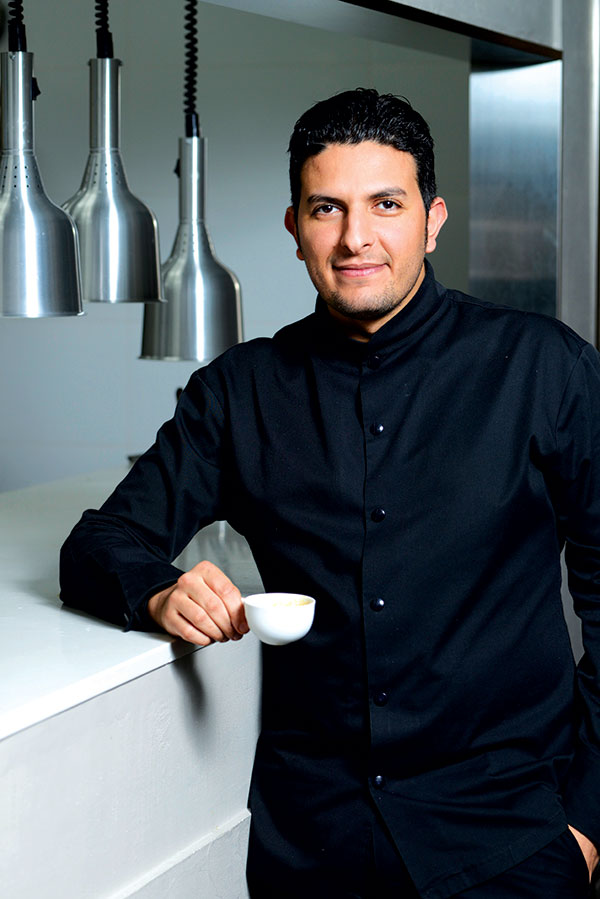
The first 13 years of his life Akrame Benallal spent in Oran in Algeria, where the vibrant tastes of his childhood left a mark so indelible that they decided his destiny. He credits his mother with instilling in him a love of food. “Everything she cooked was sublime,” Benallal says. “She would cook a tomato with a little basil and olive oil, and it was always good. I did not understand how she was doing this. Then she told me: ‘There is love.’ It was only over time that I realised what it was. I cannot explain it but it left me a legacy.”
The gift remained with him. In a twist of fate, the sudden departure of his father when Benallal was 14 forced the teenager to learn to get by on his own. In view of his burgeoning fascination with food, Benallal quickly decided that his future was in the kitchen. His determination secured him an apprenticeship at the Post Office restaurant in Molineuf in central France. At the age of 15, he went to work in nearby Blois, at the restaurant L’Orangerie du Château, where he honed his skills. He showed his mettle and three years later was invited to work with the acclaimed Chef Pierre Gagnaire. Working with Gagnaire, Benallal refined his techniques for pastry-making and it remains his greatest passion.
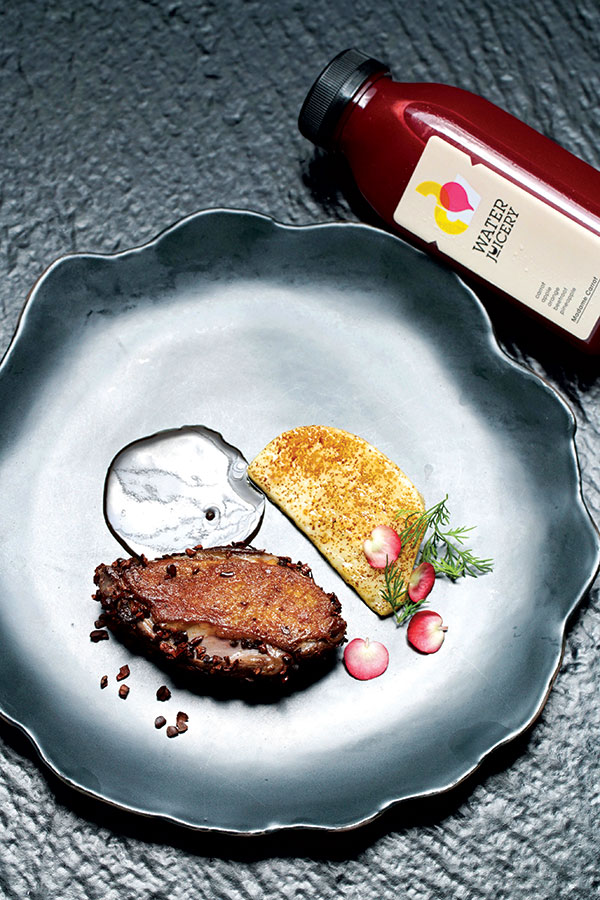
Benallal recalls a pivotal moment during that period when he sampled a dessert concocted with cheese and caramel. “It was like an explosion. It was amazing,” he says. “It made me emotional and I knew then, more than ever, that this is what I want to do.” The incident altered the way he viewed food, and was at the root of his conviction that working in the kitchen is all about creating emotions.
Benallal regards Gagnaire as one of the best things that has ever happened to him. “Here is a creator who is completely absorbed by what he does. I have nothing but respect for this man,” says Benallal. In 2004 Benallal spent one season working at El Bulli in Spain with the man he considers his other great mentor, culinary legend Ferran Adrià.
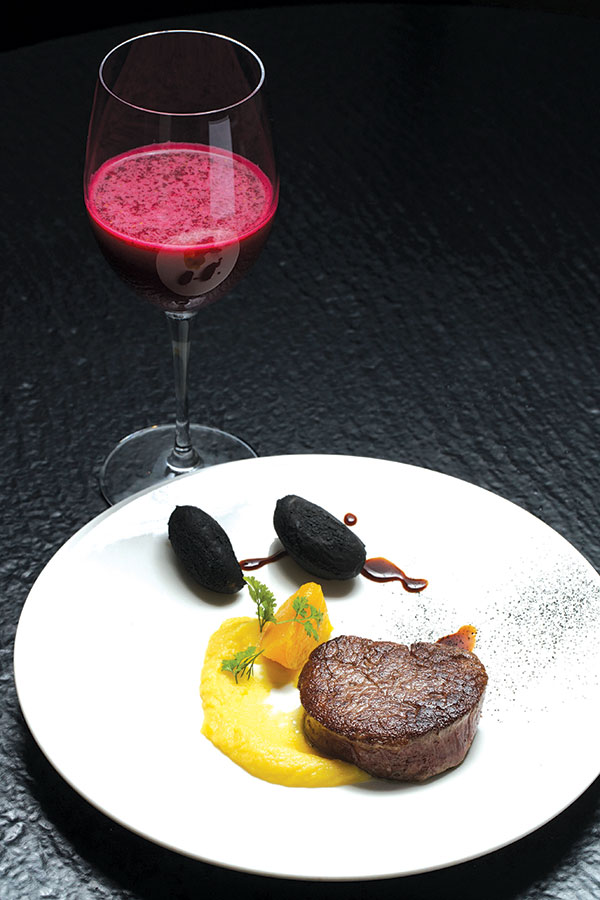
Benallal opened the first restaurant to bear his name, at 19 Rue Lauriston in Paris, in April 2011. The restaurant was a runaway success. It gained its first Michelin star only a few months after it opened – an unusual feat. Benallal’s consistently good food, made with ingredients carefully selected, won his Paris restaurant its second Michelin star last year. His restaurant in Hong Kong, opened in 2013, gained its first Michelin star within a year of opening. The chef now has several establishments in Paris and Hong Kong, those in Hong Kong being Akrame and Atelier Vivanda.
The chef applies bewildering expertise and his own exact sense of taste in preparing his food. Benallal says the desire to please should be the first ingredient any chef uses. He likens the way he cooks now to the way his mother once lovingly prepared food for him. “I wish to create the same pleasure, but not for only my family. I want to do this for everyone. For me, the kitchen is an extension of myself. It is like a tool for me to create pleasure for the customer, the people,” he says.
One of the Benallal dishes most often ordered is succulent lobster cooked at the dining table in a mason jar of steaming lobster consommé and then spooned onto a bed of lemon sabayon decorated with edible flowers. But the chef likes to change his menu regularly, introducing surprising and sometimes disconcerting new creations.
Only one aspect of Benallal’s cooking is typical. “I don’t have a signature dish or signature cuisine,” he says. “I make my own style and I always like to change. One consistent thing, though, is that I like the colour black. I use a lot of it whenever I can. I find that it is dense and intriguing.”
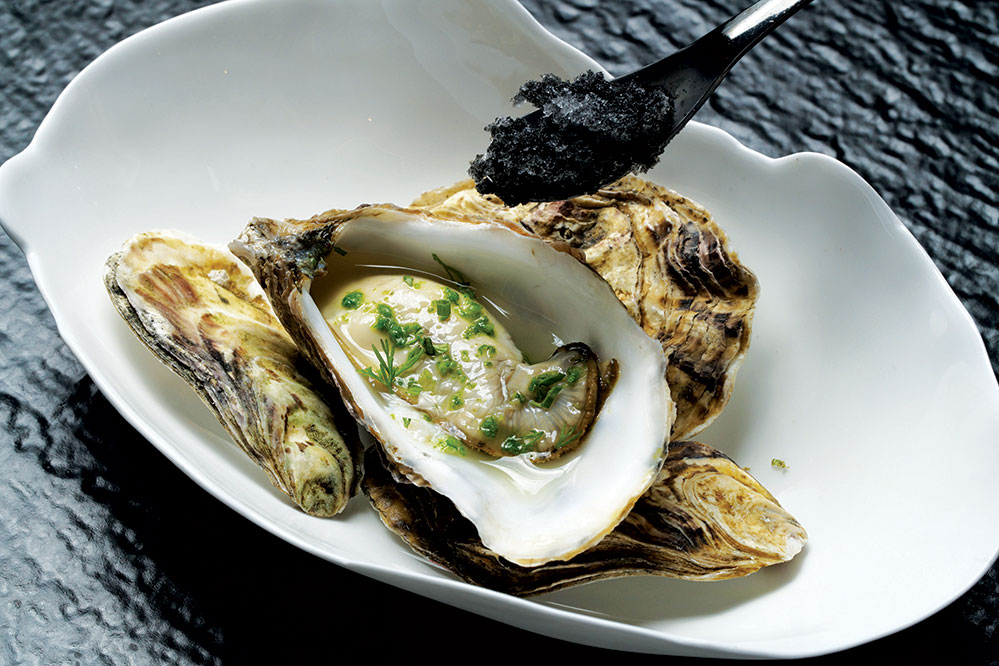
Benallal’s aim is to achieve perfection in the texture and taste of his food and the general sensation it imparts, while surprising the diner. “The inspiration changes all the time. Why? I don’t like when it’s boring,” he says. “I like to always keep moving. The way I work, it is like I start with a piece of white paper and I make a story about this dish. So when I create, it’s not like a dish that I have done already before with another chef. I invent every time.”
The chef says he prefers his dishes to have strong yet well-balanced flavours. His food must allow the diner to detect the taste of every ingredient, however subtle. Tonka beans are one ingredient Benallal favours. “ I love Tonka beans, that’s all I can say,” he laughs.
Others have failed to turn a passion for cooking into a growing business, but Benallal has succeeded. “This is a challenge, it is true. Not everybody can do this,” he says. “You can be a big chef, but if you don’t have people who want to work with you, it is a bit difficult. So you must have passion for what you do, and all the team must want to work with you. They have to look at what you do and want to give you 200 per cent.”
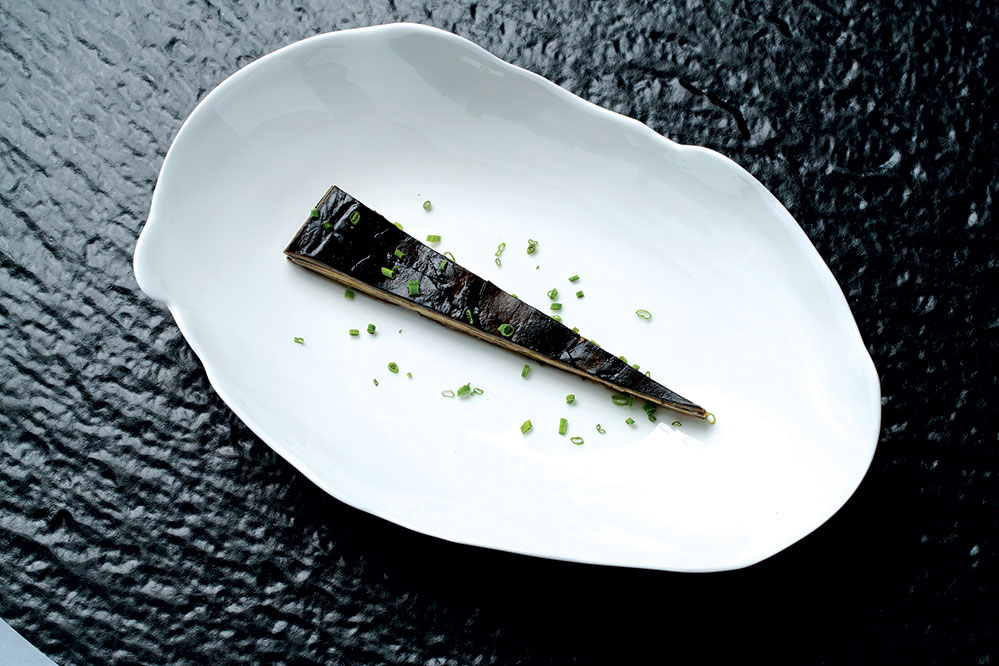
Benallal acknowledges that his freestyle approach makes demands on his team. His employees must be adaptable and be able to think on their feet. “I always change,” he says. “I like to be creative. I’m like Louboutin. I always like to create. So the staff in my team have to accept this.”
Being aware of the value of seeing things from an employee’s perspective, Benallal enjoys putting himself in their shoes. So he occasionally serves the dishes himself, without letting on to the diners. “Sometimes I’m amused,” he says. “I have been told before, ‘You tell the chef that it was exceptional,’ and it feels nice to be able to turn around and say, ‘That’s me.’ ”
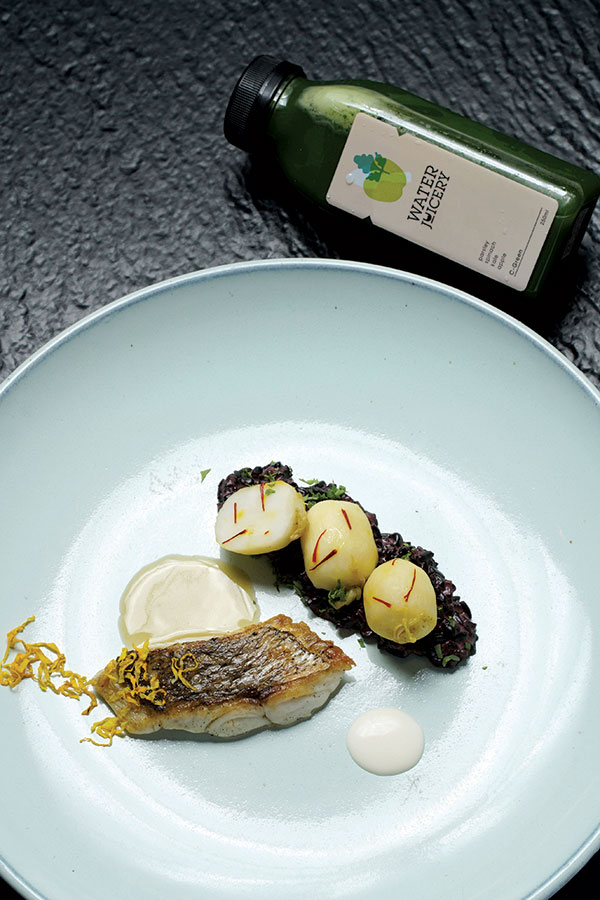
Each of Benallal’s establishments is based on a different concept. That is because the chef thinks diners these days are in search of new experiences, and that offering only fine dining limits his reach. He likens the cuisine in Akrame to haute couture and the food in Atelier Vivanda and the BRVT wine and cheese bar to prêt-à-porter.
Being based in Paris means Benallal must manage his businesses elsewhere from afar, which can be difficult. Diners in Paris and diners in Hong Kong may be offered different fare. Even so, the chef considers a presence in Hong Kong worthwhile. “Hong Kong is a really good city,” he says. “You have everyone in the world here; people that come from Sydney, Paris, London, Tokyo and so on. This, for me, is very important, because if they come and try this restaurant here, they will want to come to eat at our restaurant in Paris.”
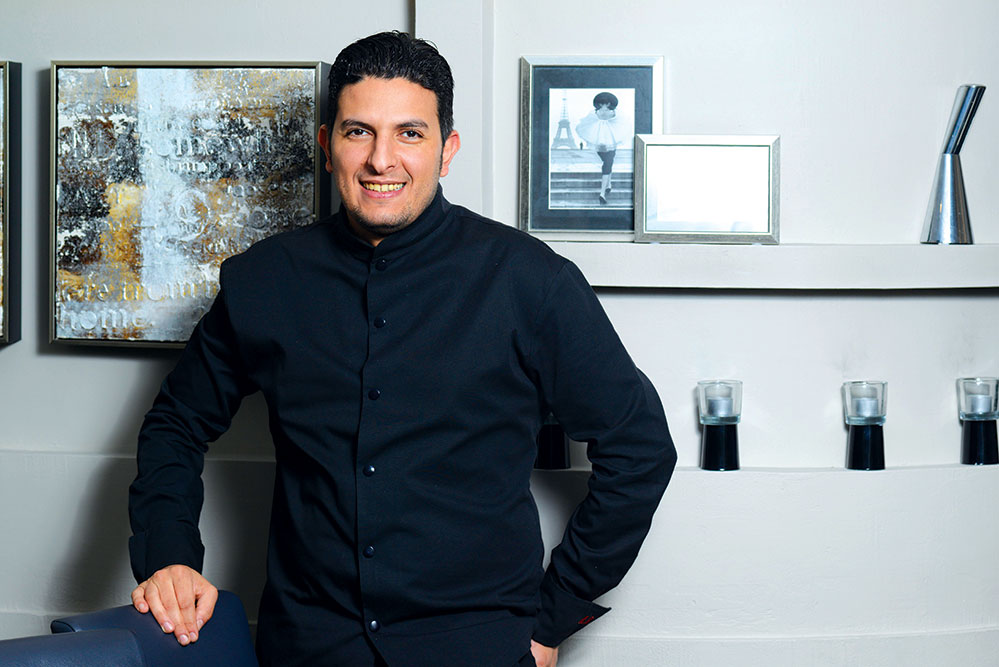
9B Ship Street, Wan Chai. 2528 5068




